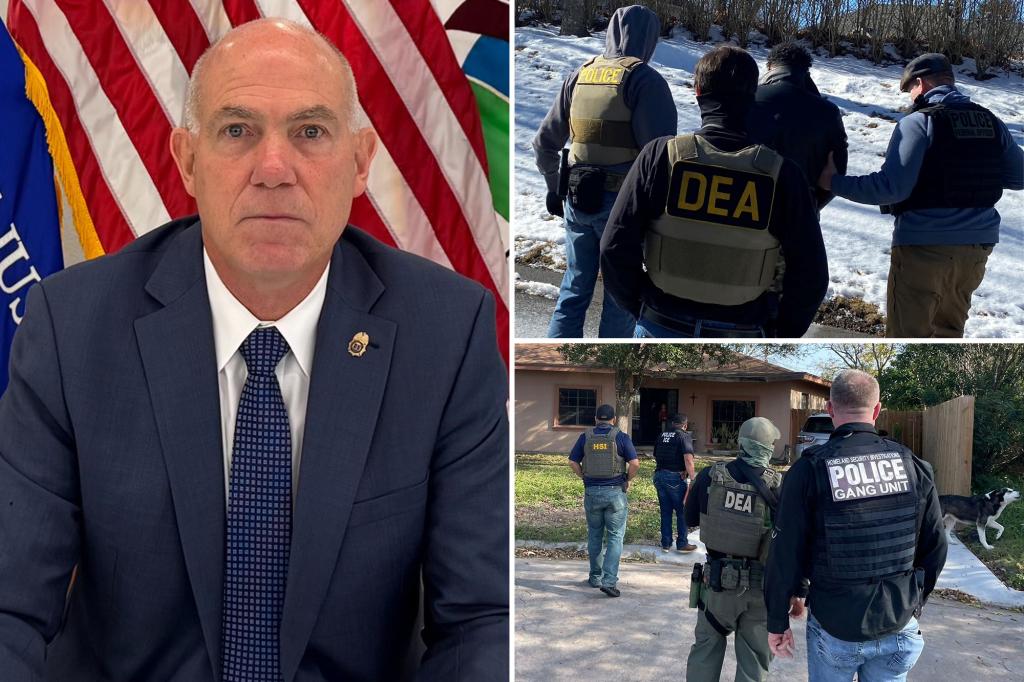Derek Maltz, the newly appointed head of the Drug Enforcement Administration (DEA), has outlined an aggressive strategy to combat Mexican drug cartels, likening the fight to a war against an “army of evil.” In his first interview since taking the helm, Maltz stressed the urgency of the situation and the need for a multinational, multi-agency coalition to dismantle these criminal organizations. He emphasized a desire for enhanced cooperation with Mexican authorities, while simultaneously advocating for holding the cartels accountable for the devastating impact they have on communities and future generations.
Maltz’s vision centers around building a “army of good” to counter the cartels’ growing influence and military-like power. He recognizes the sophistication of these organizations, noting their use of advanced technology and weaponry, essentially forming a paramilitary force. This necessitates a concerted effort, going beyond the traditional approach of arrests, indictments, and extraditions within the United States. He believes these measures are insufficient to address the root of the problem and stem the flow of drugs across the border. Instead, he proposes a more proactive strategy that leverages the full capabilities of American law enforcement and intelligence agencies, working in concert with international partners.
Crucial to Maltz’s strategy is fostering stronger partnerships with Mexican authorities. He acknowledges past challenges in securing adequate cooperation but expresses optimism about the potential for a more collaborative relationship moving forward. He sees the recently announced tariffs on Mexico, imposed by the Trump administration, as a potential lever to incentivize increased cooperation in the fight against the cartels. This pressure tactic, he believes, could be a significant catalyst for positive change and ensure greater accountability from the Mexican side. He emphasizes the shared responsibility of both countries in tackling this transnational issue that directly impacts the safety and well-being of their citizens.
The DEA chief advocates for a comprehensive approach that utilizes the agency’s global footprint and extensive network of informants to support other agencies in this effort. He highlights the DEA’s role as a central hub for intelligence gathering and international collaboration, emphasizing the need for “synergy and synchronization” among all stakeholders. Maltz believes that the Trump administration’s focus on illegal immigration, while controversial, has inadvertently created a more cohesive environment for inter-agency cooperation, facilitating a “massive cooperative center of all expertise and authorities.” This unified approach, he argues, is essential to effectively target the cartels and disrupt their operations.
While acknowledging the administration’s hardline stance on immigration, Maltz distinguishes between the targeting of violent criminals associated with drug trafficking and the treatment of vulnerable families seeking a better life. He clarifies that the current priority is to apprehend the most dangerous criminals who pose the greatest threat to communities. This nuanced approach seeks to balance border security concerns with humanitarian considerations, focusing resources on those individuals who represent a clear and present danger. He emphasizes that the administration’s focus is not on deporting impoverished families simply seeking economic opportunity, but rather on neutralizing the criminal elements that exploit vulnerable populations and fuel the drug trade.
Maltz’s rhetoric reflects a sense of urgency and a determination to confront the cartels head-on. He views the drug problem not merely as a criminal justice issue, but as a societal ill that threatens the future of the nation’s youth. His call for an “army of good” underscores the gravity of the situation and his commitment to mobilizing all available resources to combat this threat. He believes that a multi-pronged approach, combining international pressure, enhanced domestic cooperation, and targeted enforcement, is essential to dismantling the cartels and protecting communities from the devastating consequences of drug trafficking. His ultimate goal is to hold these organizations accountable for their actions and safeguard future generations from the scourge of drug addiction and violence.










